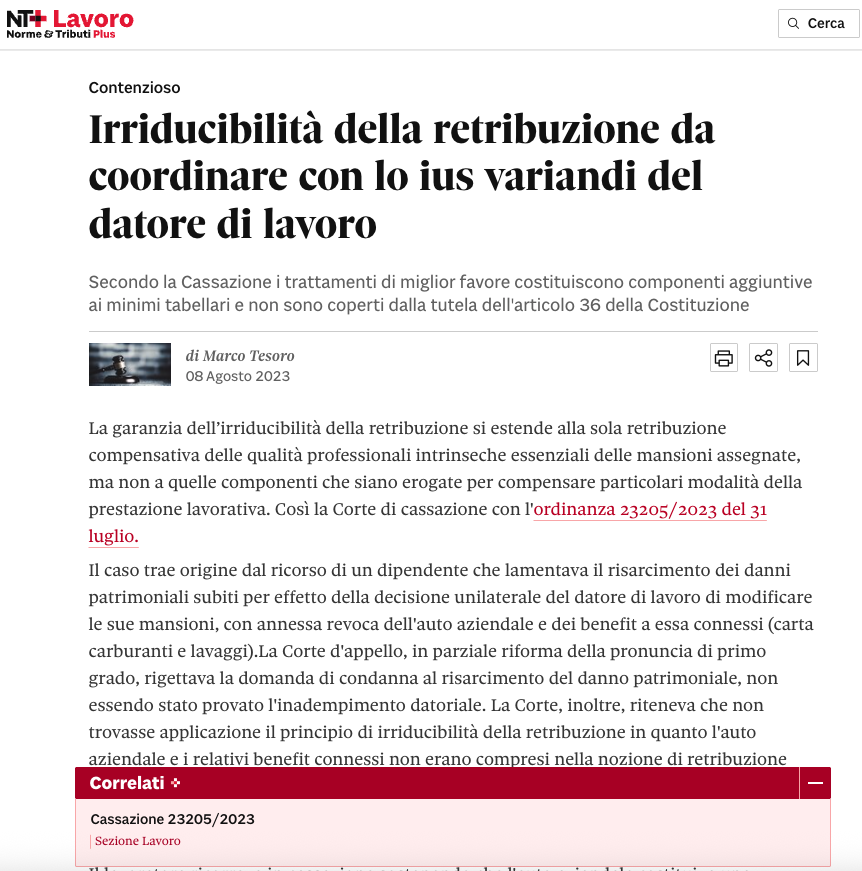Related Posts
Gruppo 24Ore7 April 2025
Irreducibility of remuneration not applicable to collective items
Pubblicato su: Il Sole24Ore – Nt Lavoro – 07/04/2025 Leggi qui
Gruppo 24Ore24 September 2024
Il benefit dello sconto tariffario non ha natura retributiva
Pubblicato su: Il Sole24Ore – Nt Lavoro – 24/09/2024 Leggi qui


